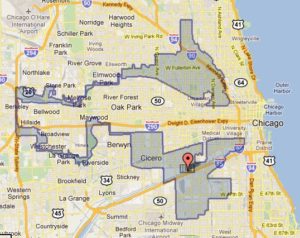Helpless, Helpless, Helpless ?

I recently exchanged emails with a friend on the topic of gerrymandering. Gerrymandering is the practice of shaping the voting districts to align with the population density that has supported the party in power, according to past election data. The majority party, the one in power gets to manipulate the boundaries of electoral districts, state-wide. This practice effectively disenfranchises the voters of the opposing party, silencing the voice of thousands, insulating the representative from the need to take them seriously. It is obvious to me that gerrymandering is a tyrannical practice, a rigging of elections that ensures that the only voices heard by an elected official are those who approach him or her with the most money. After all, if you are elected by a gerrymandered district, you are likely to remain in office for a very long time. In practice you are the modern equivalent of a Feudal lord.
The topic of gerrymandering came up in our round table philosophy discussion. The discussion was intense, passionate, ranging from tolerance, to a grudging acceptance, to the position of full-out opposition–which is my position.

The subsequent extended email exchange with a friend caused me to conclude that this discussion is about more than just the propriety of gerrymandering. More importantly our discussion was a contest, a struggle over the role and purpose of philosophy, the efficacy and utility of words, of the nature of communication, and of the relationship between words spoken or written and power. By power I mean the application of our will to construct a particular kind of society. Are words critically important, efficacious, the initial gambit in a world-making overture? Or are they ephemera, posturing, a vacuous posing? What one believes about this will be the lynch pin of one’s estimation of the work of philosophy. Is philosophy nothing more than rarefied BS, word play with ideas disconnected from the “real” world? Meanwhile the real world is left to the “real men” who happily propagandize the masses, promising the masses whatever they wish to believe, while the politician does whatever is necessary to concentrate their power.
There is another conception of the practice of philosophy. Nietzsche has precisely expressed the point.
Genuine philosophers however, are commanders and legislators; they say, “thus it shall be!” They first determine the Whether and For What of man, and in so doing have at their disposal the preliminary labor of all philosophical laborers, all who have overcome the past. With a creative hand they reach for the future, and all that is and has been becomes a means for them, an instrument, a hammer. Their “knowing” is creating, their creating is a legislation, their will to truth is–will to power.
–excerpted from Beyond Good and Evil by Friedrich Nietzsche